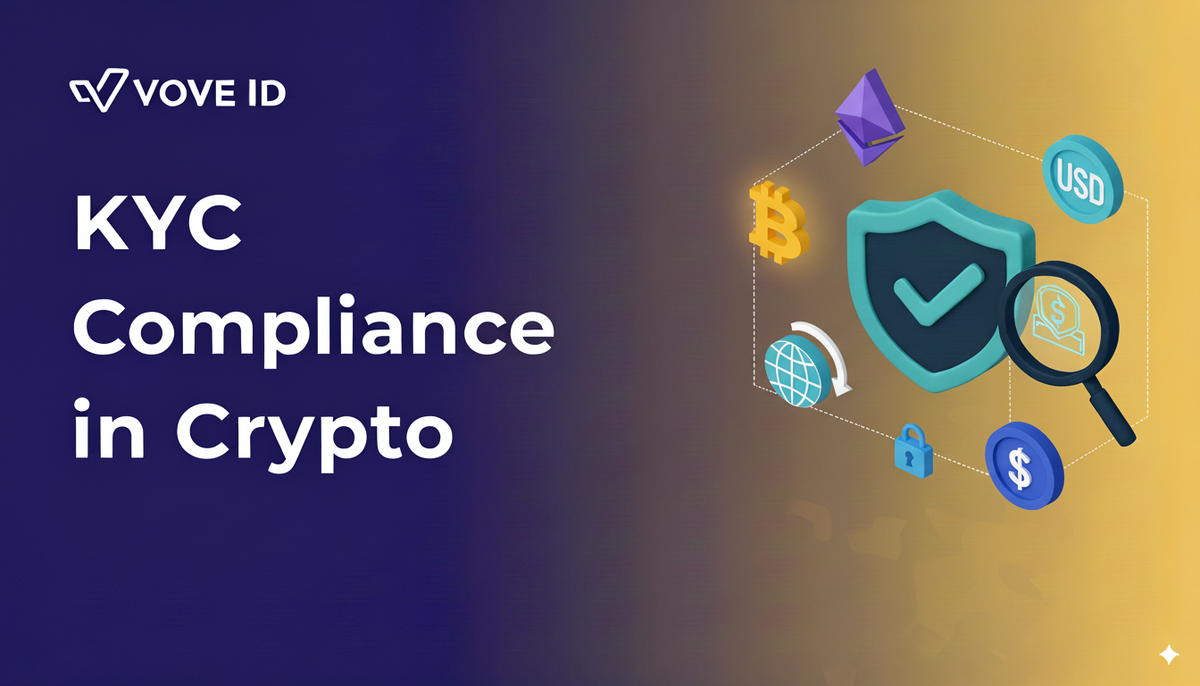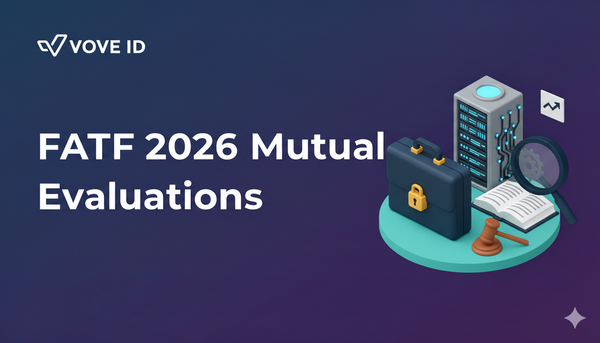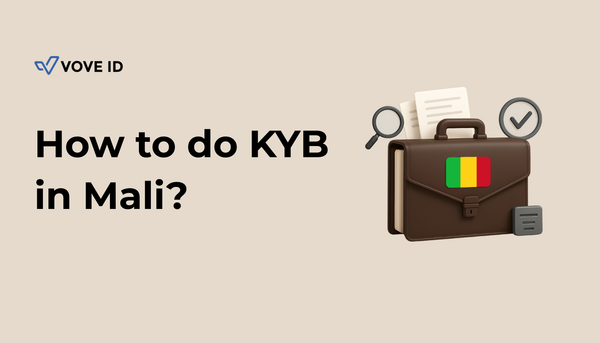KYC in Crypto: 2025 Guide for Exchanges, Wallets, and DeFi Platforms

The rapid growth of cryptocurrency has brought both opportunity and regulatory scrutiny. For exchanges, wallets, and DeFi platforms, Know Your Customer (KYC) is no longer optional: it is a regulatory requirement shaping the future of compliance and trust.
Fintech innovators in Africa and MENA are at the forefront of this transformation. Yet, navigating diverse regulations, enforcement risks, and user privacy concerns requires the right balance of compliance and user experience. VOVE ID’s mobile-first identity verification helps crypto businesses meet these demands while keeping onboarding seamless.
Why KYC Matters in Crypto
KYC helps prevent money laundering, fraud, and terrorism financing—issues that regulators worldwide are determined to address. Crypto firms that fail to comply face serious risks: multimillion-dollar fines, loss of operating licenses, and reputational damage.
A clear example is the U.S. FinCEN enforcement actions against exchanges that failed to implement robust KYC, resulting in penalties exceeding $100M. Similar enforcement is increasing in Africa and MENA, signaling a shift from soft guidance to real accountability.
Regulatory Landscape: Global & Regional Highlights
| Country/Region | Regulator | KYC Requirement | Enforcement Penalties | Key Milestones |
|---|---|---|---|---|
| EU (MiCA) | ESMA & National Regulators | Mandatory KYC for all crypto asset service providers | License suspension, fines | Full implementation by Dec 2025 |
| Nigeria | SEC, CBN, NFIU | Tiered KYC for exchanges & wallets | Suspension, fines, possible criminal liability | SEC guidelines 2022, updated 2024 |
| South Africa | FSCA, FIC | Exchanges licensed as financial service providers; strict AML/KYC | Fines, license revocation | AML Amendment Act 2022 |
| UAE | CBUAE, VARA, ADGM FSRA, DFSA | Comprehensive KYC for VASPs; eKYC allowed | Fines up to AED 5M, license revocation | VARA rulebook 2023 |
| Kenya | CBK, FIA | Exchanges must register; KYC aligned with AMLA | Suspension, fines | Draft VASP framework 2024 |
| Saudi Arabia | SAMA, CMA | Stringent KYC/AML for VASPs | Heavy fines, closure orders | FATF-aligned framework 2023 |
👉 Why this matters: Enforcement is no longer theoretical. Regulators are issuing fines and suspending licenses across Africa, MENA, and beyond.
DeFi and the Future of KYC
Decentralized Finance (DeFi) platforms face unique challenges since their open, permissionless structure clashes with traditional KYC models. However, new solutions are emerging:
- Polygon ID uses Decentralized Identifiers (DIDs) for privacy-preserving KYC.
- Aave Arc, an institutional DeFi platform, introduced whitelisted access for KYC-compliant users.
- Uniswap Labs has explored zero-knowledge proof (ZKP) integrations to verify compliance without exposing user data.
These examples show that DeFi is actively working on balancing privacy with compliance—a space where VOVE ID’s AI-driven verification can also play a pivotal role.
How strict are KYC rules across regions?

Data Snapshot: Crypto & Compliance in Africa & MENA
- Nigeria: 22 million crypto users (Statista 2024), but only 45% onboarded with formal ID verification.
- UAE: Non-compliance fines can reach AED 5M (~$1.36M).
- MENA: Over 55% of users access crypto via mobile (Chainalysis 2024).
Privacy vs. Compliance: A Growing Tension
Users value anonymity, but regulators demand traceability. In the EU, MiCA operates alongside GDPR, meaning exchanges must perform KYC while also safeguarding user privacy.
This dual requirement is reshaping onboarding strategies worldwide, with crypto businesses turning to secure, API-driven verification providers to manage both compliance and privacy.
💡 Did You Know?
- Nigeria is Africa’s largest crypto market, with over $56 billion in transactions annually (Chainalysis 2024).
- In South Africa, over 4 million adults own crypto, making it a FATF priority country for KYC enforcement.
- Kenya’s CBK recently confirmed that unlicensed exchanges face closure if they fail to meet AMLA-aligned KYC rules.
Conclusion
KYC is no longer a checkbox—it is the foundation of trust in crypto. From tiered onboarding in Nigeria to strict fines in the UAE, the message is clear: compliance defines who survives in 2025’s crypto economy.
Forward-looking exchanges, wallets, and DeFi platforms are already embracing mobile-first, privacy-conscious KYC solutions. For those ready to stay compliant while scaling fast, VOVE ID provides the competitive edge needed to succeed.
Ready to future-proof your crypto onboarding?
Explore how VOVE ID can help your business stay compliant and trusted.




